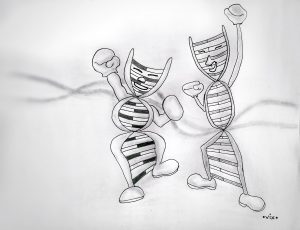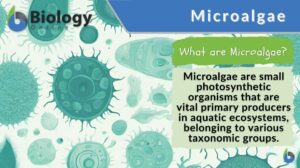Search Results for: toxin
Erythrogenic toxin
Erythrogenic toxin (Science: protein) toxin produced by strains of streptococcus pyogenes responsible for scarlet fever.... Read More
Gram-positive endospore-forming rods
Gram-Positive Endospore-Forming Rods Definition Gram-positive endospore-forming rods are a group of rod-shaped bacteria... Read More
Enterotoxin
Enterotoxin (Science: microbiology) group of bacterial exotoxins produced by enterobacteria and that act on the intestinal... Read More
Biological magnification
Definition noun, plural: biological magnification The increasing concentration of a particular substance (e.g. toxin) as it... Read More
Dinoflagellate
A dinoflagellate is a flagellate algae characterized by their two flagella of unequal length. One of the flagella is lying... Read More
SELFISH GENE – selfish to persist
What is a selfish gene? A selfish gene is not a gene that makes an individual selfish. In fact, it may even be involved in... Read More
Arrow poison
Definition noun Any toxin used for making arrow heads, spears, or darts poisonous Supplement Arrow poisons are toxins used... Read More
Diaphoresis
What is Diaphoresis? Diaphoresis is referred to excessive or profuse perspiration or sweating which may be due to... Read More
Pathogenicity
Definition noun, plural: pathogenicities The capability (of a pathogenic agent) to cause disease Supplement Pathogenicity... Read More
Streptococcus
Definition noun, plural: streptococci (1) A genus of bacteria characterized by being coccus, Gram-positive, and occurring in... Read More
Multiple alleles
Alleles are the pairs of genes occupying a specific spot called locus on a chromosome. Typically, there are only two alleles... Read More
Endocytosis
Endocytosis Definition What is endocytosis in biology? Endocytosis is a cellular process by which a cell internalizes any... Read More
Microalgae
Microalgae Definition Microalgae (singular: microalga) are microscopic algal species as opposed to other algae that are... Read More
Tissue repair
Definition noun The process of restoring the structural and physiological integrity after an injury Supplement Tissue repair... Read More
Medullary chemoreceptor trigger zone
Medullary chemoreceptor trigger zone (CTZ) (anatomy and physiology) It is located in the Medulla (i.e. Part of the brain)... Read More
Streptolysin O
Definition noun An oxygen-labile, immunogenic hemolysin produced by or derived from some strains of... Read More
Exogenous antigen
Definition noun Antigen that enters the body of the organism from the outside, e.g. through inhalation, ingestion, or... Read More
Herpetology
Definition noun The branch of zoology that deals with reptiles and amphibians Supplement Herpetology is a sub-discipline of... Read More
Vibrio cholerae
Definition Noun A gram-negative single polar flagellum bacterium associated with cholera infection in... Read More
Eubacteria
Eubacteria are prokaryotic microorganisms consisting of a single cell lacking a nucleus and containing DNA is a single... Read More
Endoplasmic reticulum
Endoplasmic Reticulum Definition The endoplasmic reticulum is a membrane-bound organelle in cells of eukaryotic cells... Read More












